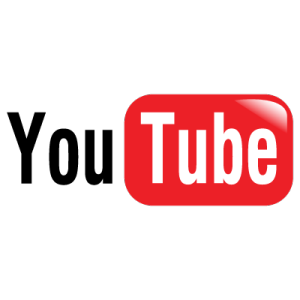10 Second Takeaway: Google and Facebook are growing their respective market share leads in advertising. There are many places to advertise online, but Google and Facebook are projected to capture a combined 78% of search and 52% of display (image) online advertising in the U.S. this year. And we have news about Amazon, YouTube, and search engines that you should know this week.
We have an opening for one new client project. We often refer prospective customers to other agencies because of our commitment to personal, custom services and keeping our company its current size, so it’s exciting to have the chance to work with someone new!. Please share this information with any friends, colleagues, or partners who may benefit from our services. You can set up a phone meeting or have them contact us and tell us you sent them. We appreciate all the referrals we receive and promise to make you proud of referring someone to us today.
Spotlight on Search Quality & “Inaccurate Information”
Google won’t use the catchphrase “fake news” but is turning its army of 10,000 quality review checkers over to tackle factually inaccurate data. These Google contractors have been checking pages for years and comply with the instructions contained in a very long manual. We’ve read it, and it’s not exciting, but it’s very well done.
The checkers now can flag inaccurate facts from sites denying the Holocaust as well as other offensive topics such as white supremacy, Islamaphobia, and false facts published by sites as true. The Google checkers, called contractors, can flag the page as “Upsetting-Offensive”. People searching for that specific data will be available to find it, but Google will indicate that the factual nature of the claims are in question, using a flag in the displayed results.
The flags will be visible on search results pages, which is important because the average search session lasts under one minute. Visual cues make the most impact in short periods of time. Also, only 15% of people use a search engine every day. This and other exhaustive data covering millions of searchers is from a new Moz.com report. Consider your own search behavior. Do you visit Google or Bing every day? We link to the report below.
Our Take: This is a smart move by Google. They won’t get rid of all the misinformation out there, but the most egregious examples, especially those at the top of search results, will be flagged and perhaps diminished. Think of it as the incontrovertible fact check. You may not experience the sky as blue if you’re visually impaired, but a website writing that the sky’s color is normally magenta will be flagged.
Read more: Google at ABC News, Search Engine Land, Moz.com search study
Spotlight on Shopping Online
 Are you ready to shop for your next outfit with a style consultant providing feedback in about a minute?
Are you ready to shop for your next outfit with a style consultant providing feedback in about a minute?
Amazon is preparing to roll out OUTFIT COMPARE, a new feature allows you to upload a picture, then see yourself in multiple outfits. It also offers an Amazon stylist to tell you which looks best.
According to tech blog TechCrunch, which broke the news, Outfit Compare is being tested on limited versions of Amazon’s app for iPhone and is only available for Amazon Prime members.
Our Take: Amazon continues to push limits with its ever-growing list of Prime benefits. The hodgepodge of offers, including the 2 day or faster free shipping, is designed to keep a steady stream of consumers renewing the yearly $100 membership. A review of Amazon’s financials by Morgan Stanley, as reported by Business Insider, put the number of Prime users worldwide at 65 million at the end of 2016. And they pay an average of $88 per user in membership fees
Read more: TechCrunch
Spotlight on YouTube
It’s legendary. Every minute 300 hours of video is uploaded to YouTube. More than half of all people in the United States have watched a video there in the last year. More than 80% of teenagers and 90% of millenials watch YouTube. And about 10% of U.S. businesses upload video there.
We talked with one business owner this week who gives away his content on YouTube because the real value comes in signing up local customers.
YouTube is also eliminating its Annotations Editor on May 2. Those are the captions and balloons you see on many videos. After May 2nd, uploaders will only be able to delete them. Video editors can still edit in plenty of captions and artwork, but YouTube says that most users prefer the full screen Cards and the End Screen cards that have gained popularity in recent years.
Image of Google logo courtesy Google. Image of couple shopping online courtesy Hwellrich, Image of YouTube logo courtesy YouTube

